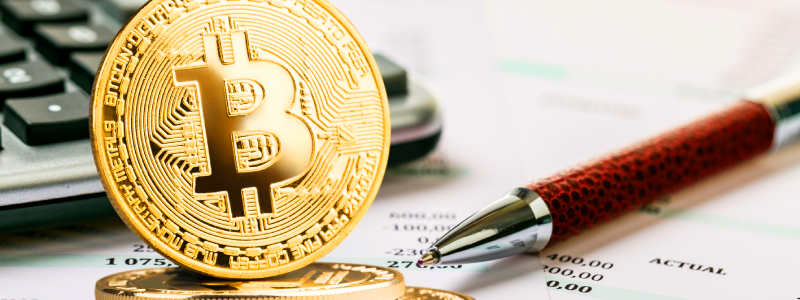Understanding the intricacies of organising your crypto year-end data can seem like a challenging endeavour. We’ve crafted a guide designed to make this process easier for you.
First, review your Crypto Documentation Records
Before submitting your crypto information to your trusted crypto tax specialist, ensure that your records are complete. What do we mean by that? Make sure that you document all centralised crypto exchanges you have transacted with during the financial year, or that you use to hold crypto assets (even if there has been no transactions). The same applies to any hot or cold storage wallets which you have used or hold crypto assets on (including Non-fungible Tokens (“NFTs”).
An important exercise is to keep a logbook (typically in MS Excel or Google Sheets) detailing the name of each centralised crypto exchanges used, the name of each hot and cold storage wallet and corresponding wallet address used. Make sure to include columns detailing the ownership percentage (%) and the intention and purpose of each. See an example below:
| Exchanges | Ownership | API | Secret Key | Purpose |
| Binance | 100% Myself | Margin activity | ||
| CoinSpot | 100% Myself | Spot trading/HODL | ||
| Hot Wallets | Ownership | Wallet Address | Purpose | |
| Metamask | 50% Myself / 50% Elon Tusks | DeFi Staking | ||
| Cold Wallets | Ownership | Purpose | ||
| Ledger | 100% Myself | HODL | ||
As these records will be used to substantiate your affairs it is important that you keep separate records for each financial year you use or hold crypto. For context, you may be investing one year and another carrying on a business of trading crypto. It is important that your registered tax agent has this information available so that the determination between investing and trading can be made and your affairs correctly reported in your tax return.
Understand the Importance of Your Crypto Tax Reports
Unlike shares, there is no regulatory organisation in crypto that validates and confirms information of investors’ shareholdings. This means that record-keeping and the preparation of crypto tax reports become the sole responsibility of the taxpayer to ensure compliance. You can ensure you are compliant in reporting your crypto activities by using the services of a registered tax agent that is specialised in crypto like the Fullstack Crypto team. Alternatively, if your affairs are straightforward you may consider using a reputable coin-tracking software provider and preparing and reporting your affairs yourself. Be wary, that self-reporting crypto without context to the wide range of tax implications may result in you under or over-reporting your crypto activities. Also very common is mislabelling the crypto activities in the tax return (there are over 24 income items in the tax return!). The ATO has advised taxpayers to do their due diligence prior to lodging, this means ensuring that your affairs are being collated, calculated, and reported correctly. In not doing so, may lead to possible amended assessments by the ATO or reviews being conducted.Avoid Missing Cost Bases
The easiest way to over-report your affairs (some may be doing this unknowingly) is by not correcting any missing cost bases. Missing cost bases are often the cause of grief amongst self-preparers, and while it is perfectly fine to accept defeat and utilise the services of a crypto tax professional, not addressing these issues may be inflating your reportable capital gains. Where you are unable to substantiate the cost base of your assets, when disposed the ATO will likely consider that due to the lack of substantiation, the cost base will be assumed zero. Therefore, considerations may be relatively low and not worth the hassle to resolve for some. For others, this can have devastating implications for the result of your Income Tax Return. Typically, we find missing cost bases are a result of deposits being made to exchange or wallet addresses where the crypto asset is ultimately sold, whereby the coin tracking software is unable to validate when the initial purchase date and price was. This may be the result of an exchange or wallet address which has not yet been connected to your coin-tracking software. Other instances may include the lack of support to the network being used by the software, and hence, manual upload of data may be required. If you are considering self-preparing your tax return this year and find yourself in this situation, consider reaching out to the coin tracking software support. If you are still stuck or not satisfied, consider reaching out to Fullstack Crypto Tax Accountant here.Accessing Your Data
It is imperative that you can access your data at all times. A fail-safe way of achieving this result is by periodically extracting the CSV/Excel full transaction history from the centralised crypto exchanges you engage with. Unfortunately, we cannot rely on exchanges to be around to access the data when we need it. Getting into the habit of extracting your data each quarter is a best-practice solution to mitigate the implications of losing access to your data. Remember that having your data on hand will be required to prepare complete and accurate crypto tax reports required to report your affairs correctly within your Return. Visit the ATO’s guidance (QC 69955) for more information on crypto record-keeping requirements.Get In Early
Try to avoid initiating the preparation of your 2023 Income Tax Return too close to the lodgment due date if you have crypto considerations. Due to the complexity of crypto activity and preparing crypto tax reports, it is imperative that enough time is left to ensure it is done correctly.Disclaimer
The information presented in this article is based on the current guidelines provided by the Australian Taxation Office (ATO) and relevant legislation, but please be aware that these guidelines and laws are subject to change. This article is intended for educational purposes and may not relate to your specific situation; therefore, we recommend seeking the advice of a crypto tax professional.Our Commitment
As one of the first crypto tax and advisory firms in Australia, Fullstack Advisory is committed to the ongoing tax compliance and advisory support to the crypto community. As part of our commitment, we welcome you to schedule a free 15-minute consultation to discuss your affairs and how we can help. Reach out to the Fullstack Crypto Team today.Was this article helpful?
Related Posts
- How is Crypto Taxed in Australia?
Whether you are a crypto trader or investor, you most likely have the task of…
- Crypto Trader vs Crypto Investor
Working out whether you are a crypto trader or investor at tax time can be…
- EOFY Crypto Tax Planning Checklist
Crypto taxes can be extremely difficult to complete correctly. In this guide, we’ll take a…
- Benefits Of Combining Your Tax Accounting And R&D Tax Incentive Service
People often asked whether it is compulsory to have their R&D tax compliance and tax…
















